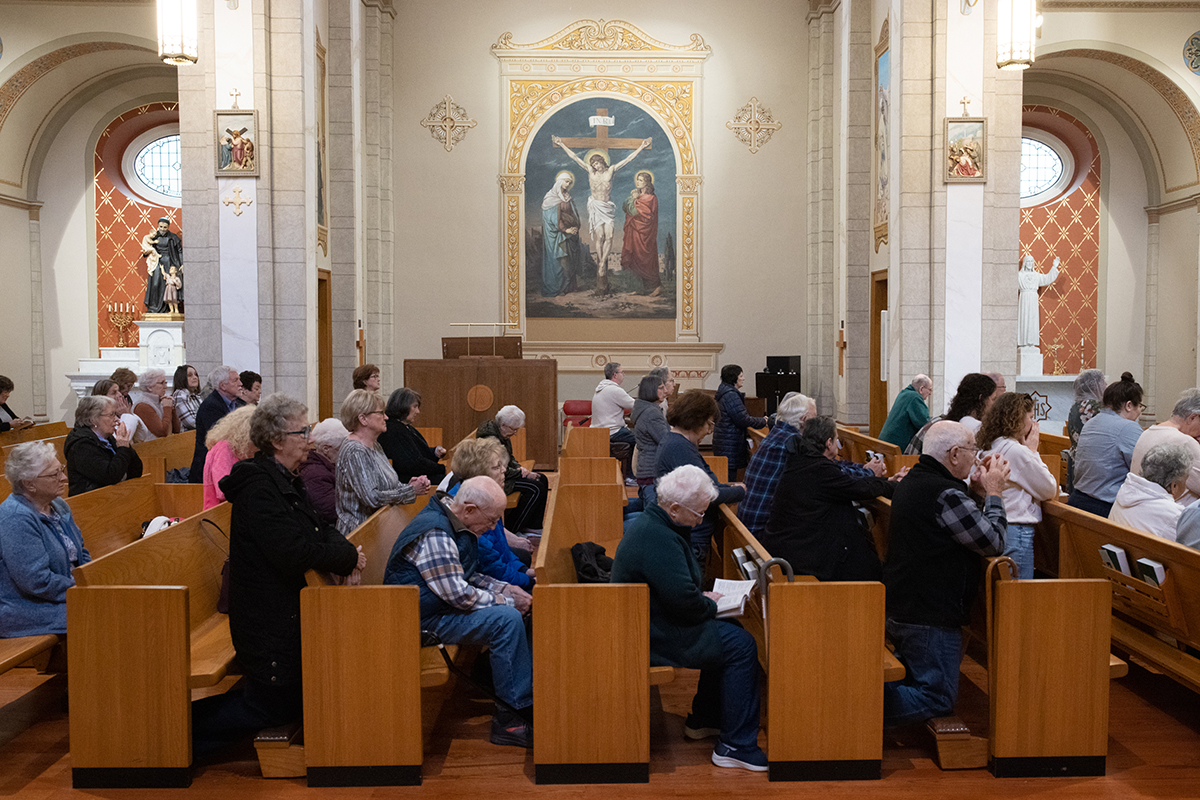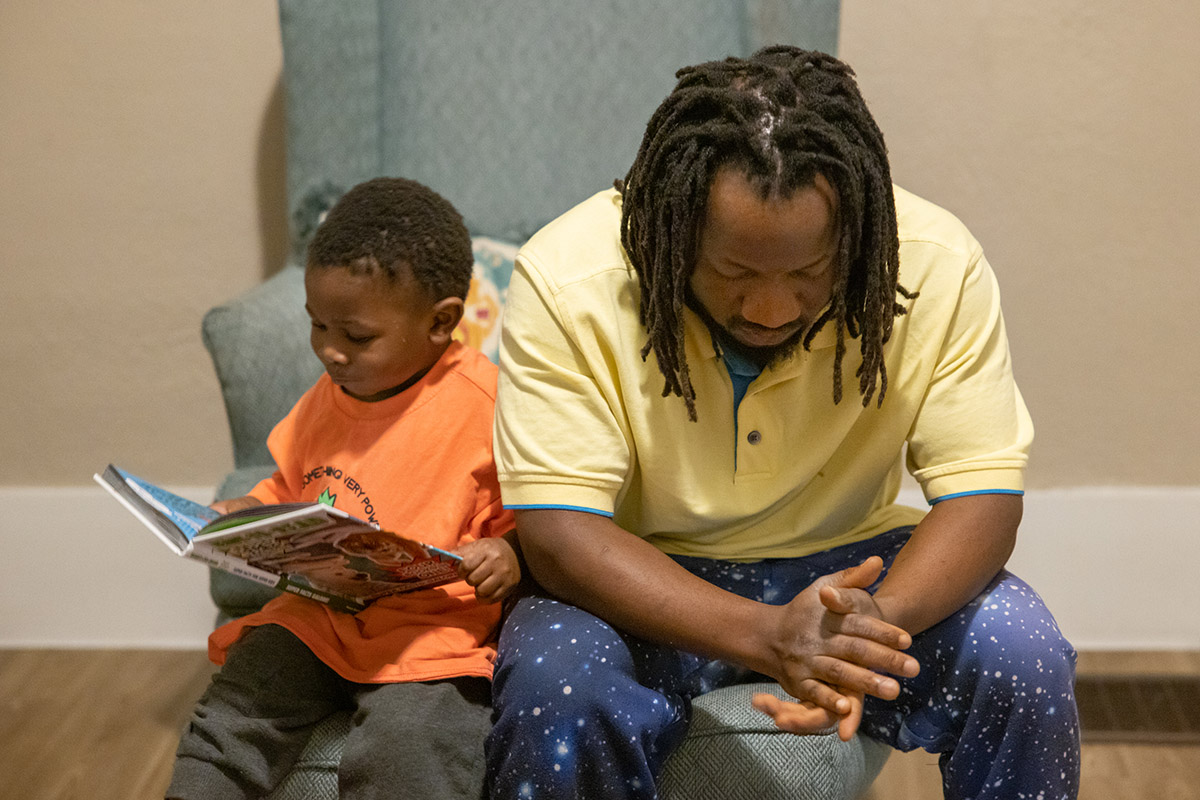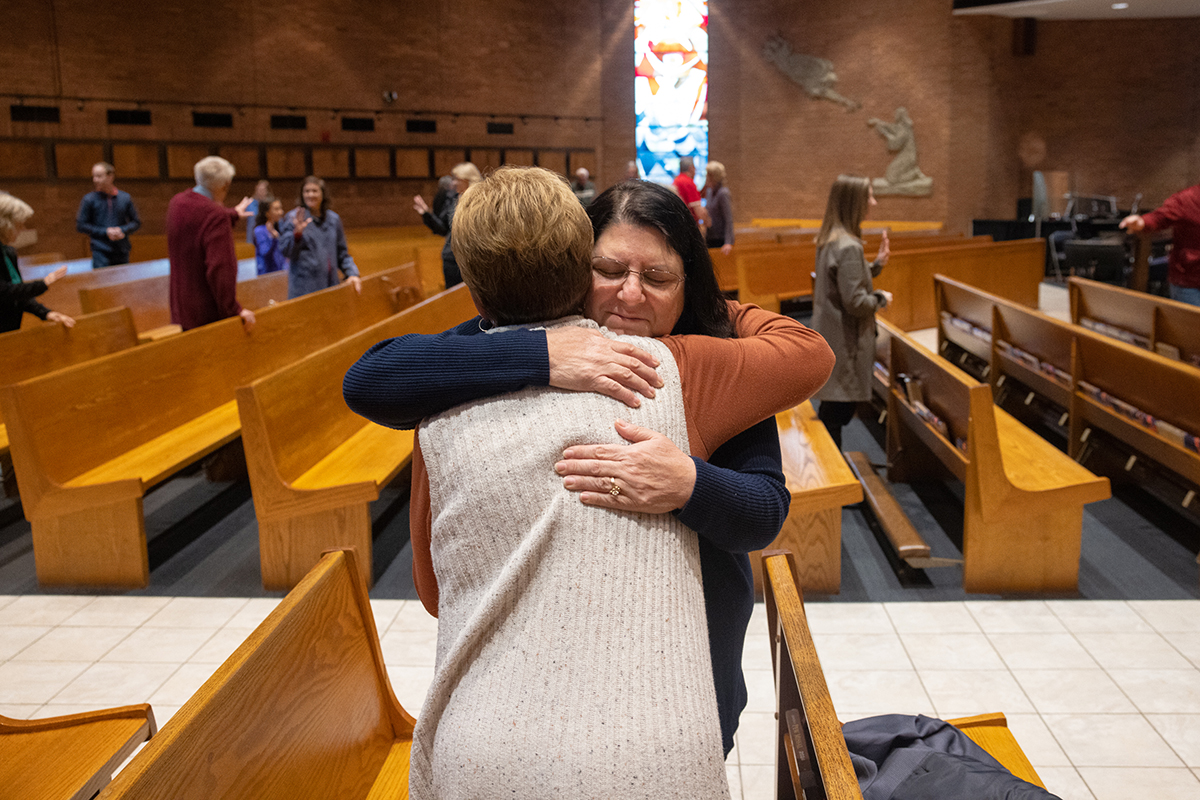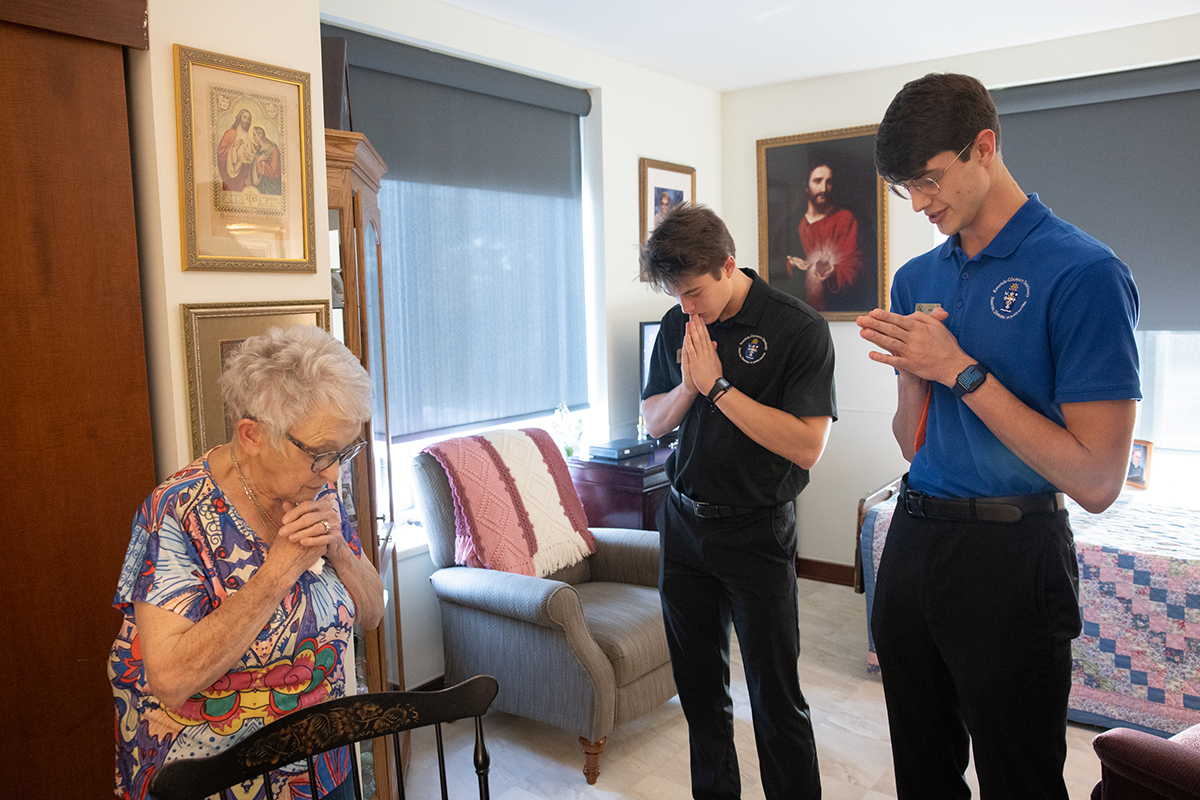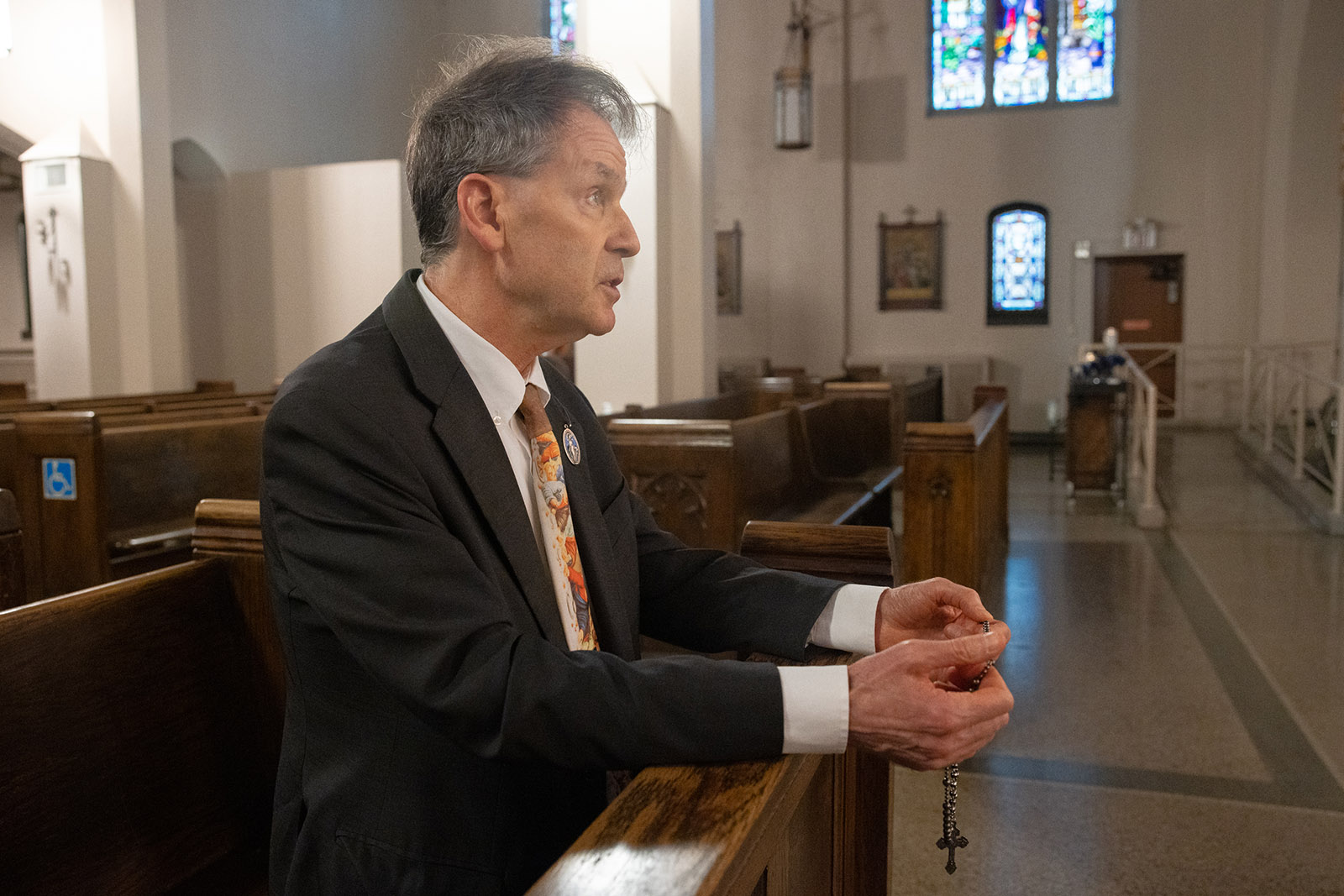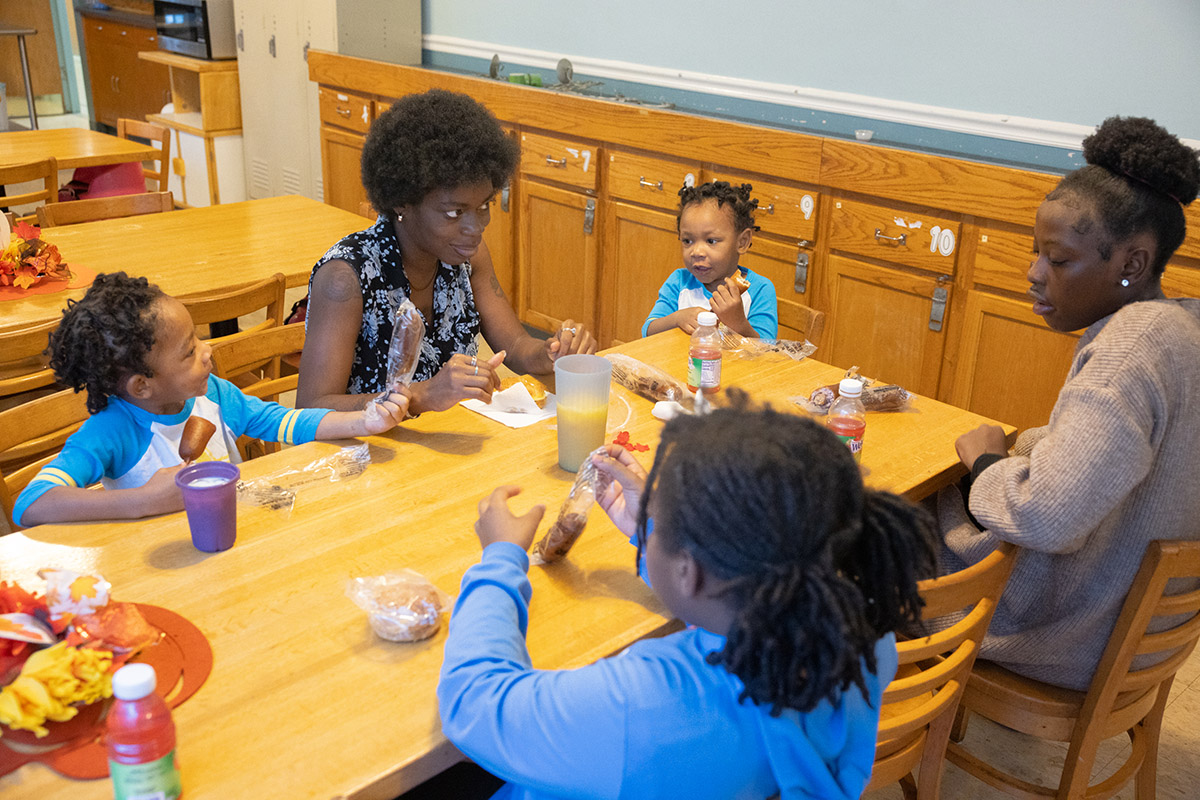African Catholic community finds a new home at St. Norbert Parish in Florissant
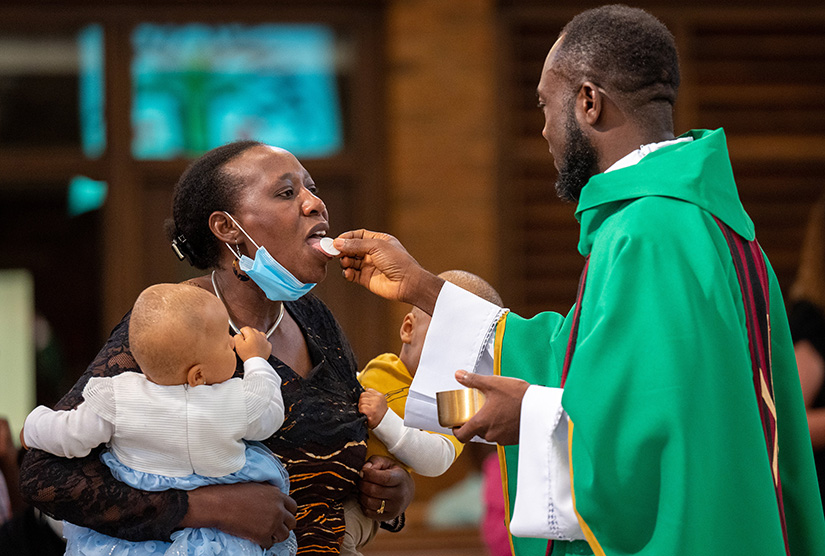
A ministry for Catholic immigrants from Africa has a new home at St. Norbert Parish in Florissant.
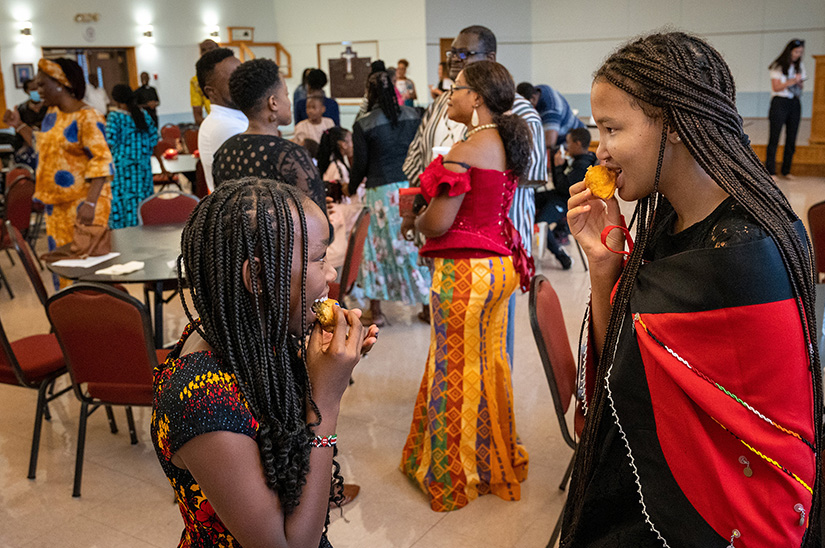
An official kickoff was held Sept. 4, with Mass celebrated in Swahili, followed by a meal with traditional African dishes. The 12:30 p.m. Sunday Mass will rotate in theme each week and also include a Mass spoken in French on the second Sunday; a Gospel Mass on the third Sunday; and a Unity Mass on the fourth Sunday.
St. Norbert pastor Father Peter Faimega, a native of Tor Donga, Nigeria, said he felt a call to establish St. Norbert as a home for Catholic African immigrants and learned that a lay community — the St. Louis International African Catholic Community — already existed.
The community came together in 2010 and originally was based at Holy Trinity Parish in St. Ann until 2020, with the start of the pandemic and then the closure of the parish that June. Many stayed away from church in the early days of the pandemic, watched livestreamed Masses or attended Mass at parishes closer to home. The community represents nearly a dozen African countries of origin, including Kenya, Uganda, Tanzania, Congo, Burundi, Rwanda, Togo, Nigeria and Mali.
Father Faimega discovered that African immigrants were having trouble finding a sense of community and missed the special cultural aspects of their faith, in particular through the celebration of the Mass. St. Norbert also had several immigrants from a few African countries already attending Mass there.
“I wanted to let them know that the Catholic Church is welcoming, and I want them to have a sense of belonging,” Father Faimega said.
Agnes Gitau, a native of Kenya and one of the founders of the St. Louis International African Catholic Community, also observed the cultural challenges among African Catholic immigrants.
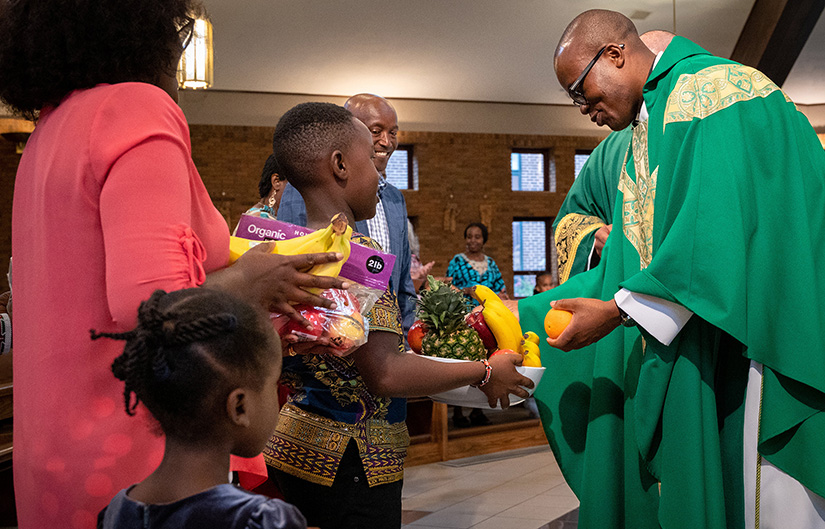
“We feared they were losing their (Catholic) faith to other faiths, which are more African oriented, because they don’t understand the American culture as well,” said Gitau, who with Gabriel Akura and Njoki Karanja, also natives of Kenya, formed the community in 2010. “We decided to form a group whereby we can pray and exercise our Catholic faith in our own culture.”
Father Faimega, whose native language is Tiv, said he will rely on the help of visiting priests for Masses in Swahili, a native language of many eastern African countries, including Kenya, Tanzania, Congo, Rwanda and Uganda; and French, which is spoken in many western and central African countries, including Burkina Faso, Burundi, Cameroon, Central African Republic and Congo, among others.
Father Ambrose Wanyonyi, a priest of the Diocese of Evansville, Ind., and a native of Kenya, celebrated the Sept. 4 Mass at St. Norbert. In the homily, which was spoken in Swahili and English, the priest encouraged the community to continue to be disciples of Christ and to strengthen their bonds as a community.
“Get to know one another, so you can grow together as a community of faith,” he said. “I encourage you to invite everyone to come to these Masses.”
The offertory procession included a presentation of several kinds of fruits, including apples, bananas, pineapples and oranges, and eggs. The offering is common at Masses in Africa, said Steve Wakaba, vice president of the St. Louis International African Catholic Community.
“Most Africans rely on the harvest, and what they harvest is a product that they give to God,” he said. Oftentimes there is a large line of people who offer those “first fruits,” with extra given to the priest and to be distributed to the poor.
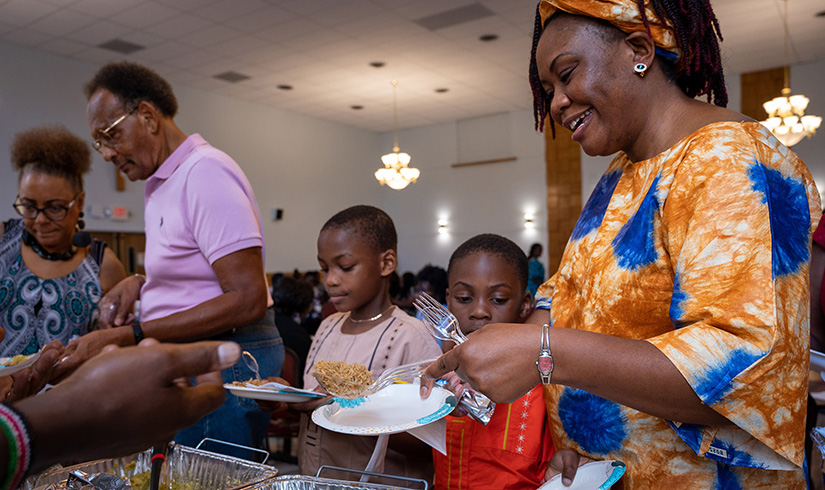
“During Mass, when the priest says, ‘Pray brothers and sisters that my sacrifice and yours may be acceptable’ … similarly, that is considered the works of their hands,” said Father Paul Lesupati, a priest of the Diocese of Springfield, Ill., who concelebrated the Mass at St. Norbert. “It has a significance … that this is what we are offering to God.”
Those gifts are an extension of the sharing nature found within African culture said Diana Donovan, president of the St. Louis International African Catholic Community. “In our culture, we share,” she said. “We live in community, so whatever you have, you share with others. Let’s say you have milk. You make sure that your neighbors have it, and if they don’t have it, you share with them.”
The community has financially supported members to return home for the death of a loved one, and it also has worked with a local organization, Vitendo 4 Africa, to help newly migrated Africans to settle here with resources including housing, furniture, registering children for school and transportation.
Donovan described the African community here as “resilient,” adding that through the pandemic, “we still continued to encourage one another. We didn’t give up, and that is what has brought us here today.”
>> Vitendo 4 Africa
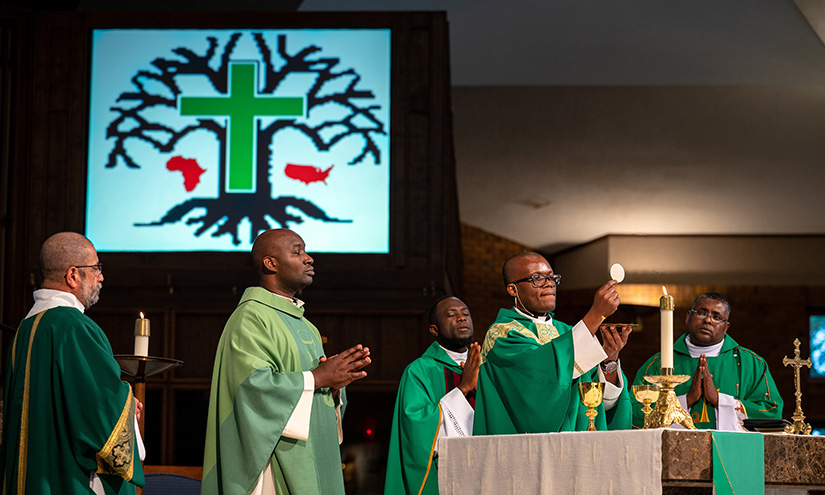
Vitendo 4 Africa is a nonprofit organization that empowers communities through educational and outreach programs in Missouri and Africa.
The organization provides a forum for discussion of common issues, aspirations and solutions for the advancement of individuals and groups from African immigrant communities in Missouri. It also promotes and preserves the diverse African history, music, arts and cultures, and sponsors events organized by immigrant communities in St. Louis and beyond.
For more information, see vitendo4africa.org.
>> African Catholic Ministry at St. Norbert
The ministry will provide an additional Sunday Mass at 12:30 p.m., with a reception afterward including fellowship and refreshments:
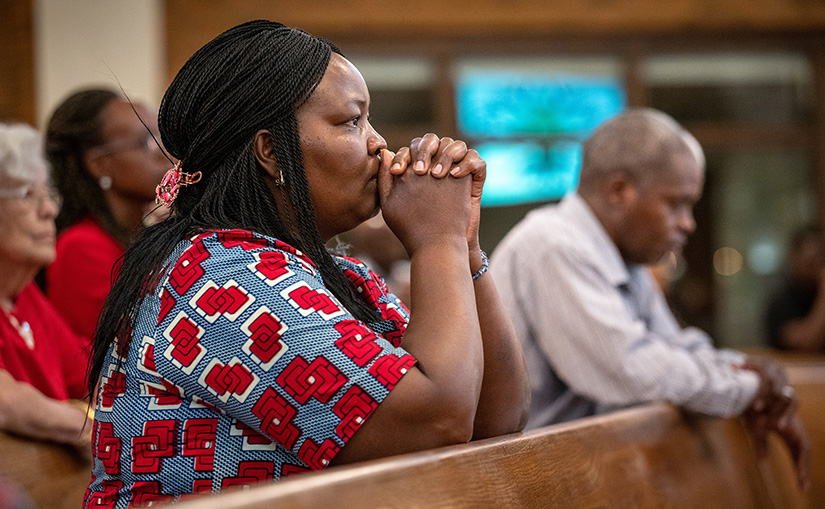
1st Sunday: Mass in Swahili
2nd Sunday: Mass in French
3rd Sunday: Gospel Mass
4th Sunday: Unity Mass
Masses also will be livestreamed at St. Norbert’s YouTube page: stlreview.com/3TNf4RD
To learn more about the St. Louis International African Catholic Ministry, email Diana Donovan at dianakoskei@yahoo.com; or Steve Wakaba at stvwkb@gmail.com; or find the group on Facebook at stlreview.com/3esdZhZ
>> African immigrants in St. Louis
Total number of legal permanent residents (immigrants) to the St. Louis Metro area from African countries of origin, covering a 10-year period from 2011-2020:
Kenya — 853
Nigeria — 600
Ethiopia — 557
Somalia — 400
Burundi — 288
Republic of the Congo — 254
Democratic Republic of the Congo — 242
Comoros — 210
Burkina Faso — 176
Ghana — 171
Liberia — 153
South Africa — 140
Uganda — 105
Togo — 96
Senegal — 79
Zimbabwe — 47
Rwanda — 47
Eritrea — 44
Cote d’Ivoire — 40
Sierra Leone — 38
Zambia — 37
Equatorial Guinea — 35
Mauritania — 24
Cabo Verde — 20
Source: Department of Homeland Security, annual Yearbook of Immigration Statistics
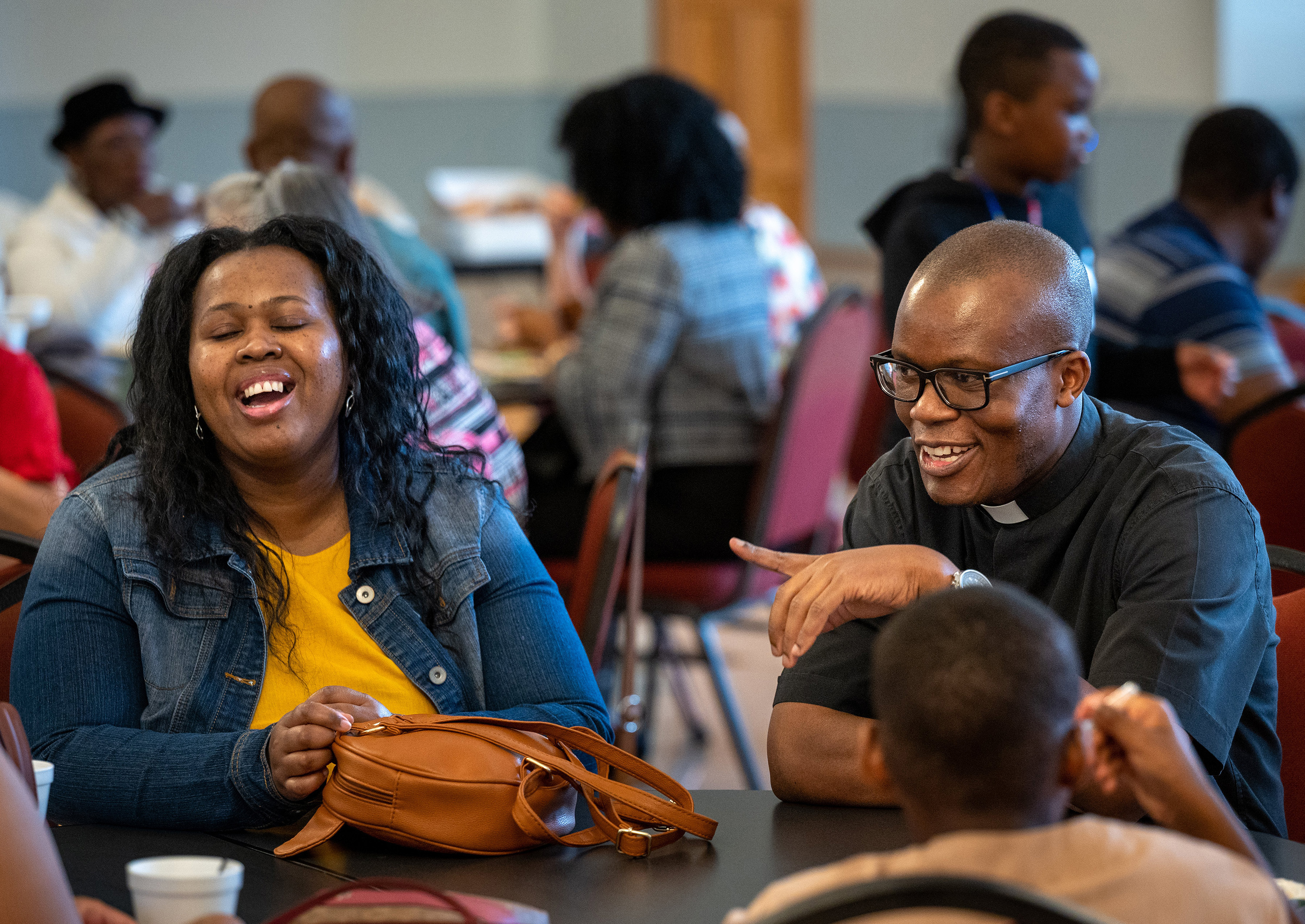
A ministry for Catholic immigrants from Africa has a new home at St. Norbert Parish in Florissant. People gathered for lunch with traditional African dishes following a Mass in Swahili … African Catholic community finds a new home at St. Norbert Parish in Florissant
Subscribe to Read All St. Louis Review Stories
All readers receive 5 stories to read free per month. After that, readers will need to be logged in.
If you are currently receive the St. Louis Review at your home or office, please send your name and address (and subscriber id if you know it) to subscriptions@stlouisreview.com to get your login information.
If you are not currently a subscriber to the St. Louis Review, please contact subscriptions@stlouisreview.com for information on how to subscribe.

